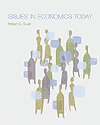| asset substitution effect | Government is saving for you, thus you will save less for yourself.
|
 |
 |
 |
| average index of monthly earnings (AIME) | The monthly average of the 35 highest earnings years adjusted for wage inflation
|
 |
 |
 |
| bankrupt | The state of having insufficient assets to pay obligations.
|
 |
 |
 |
| bequest effect | People save more to give larger gifts to their descendants, thus increasing national savings.
|
 |
 |
 |
| externalities | Effects created by an unregulated market on people other than the buyer or seller
|
 |
 |
 |
| fully funded pension | A system that has an amount currently invested that is sufficient to pay every benefit dollar it is required to pay in the future.
|
 |
 |
 |
| induced retirement effect | People need to save more if they are going to retire earlier than they would have without Social Security.
|
 |
 |
 |
| maximum taxable earnings | The maximum of taxable earnings subject to the payroll tax.
|
 |
 |
 |
| means test | Determination of the amount of one's government benefit on the basis of income or wealth.
|
 |
 |
 |
| pay-as-you-go pension | A system where current workers' taxes are used to pay pensions to current retirees.
|
 |
 |
 |
| payroll taxes | Taxes owned on what workers earn from their work.
|
 |
 |
 |
| primary insurance amount (PIA) | The amount single retirees receive in a monthly check if they retire and their retirement age.
|
 |
 |
 |
| retirement age | The age at which retirees get full benefits.
|
 |
 |
 |
| Social Security Trust Fund | A fund established in 1982 to hold government debt which will be sold as necessary when tax revenues are less than benefits.
|




 2003 McGraw-Hill Higher Education
2003 McGraw-Hill Higher Education


 2003 McGraw-Hill Higher Education
2003 McGraw-Hill Higher Education